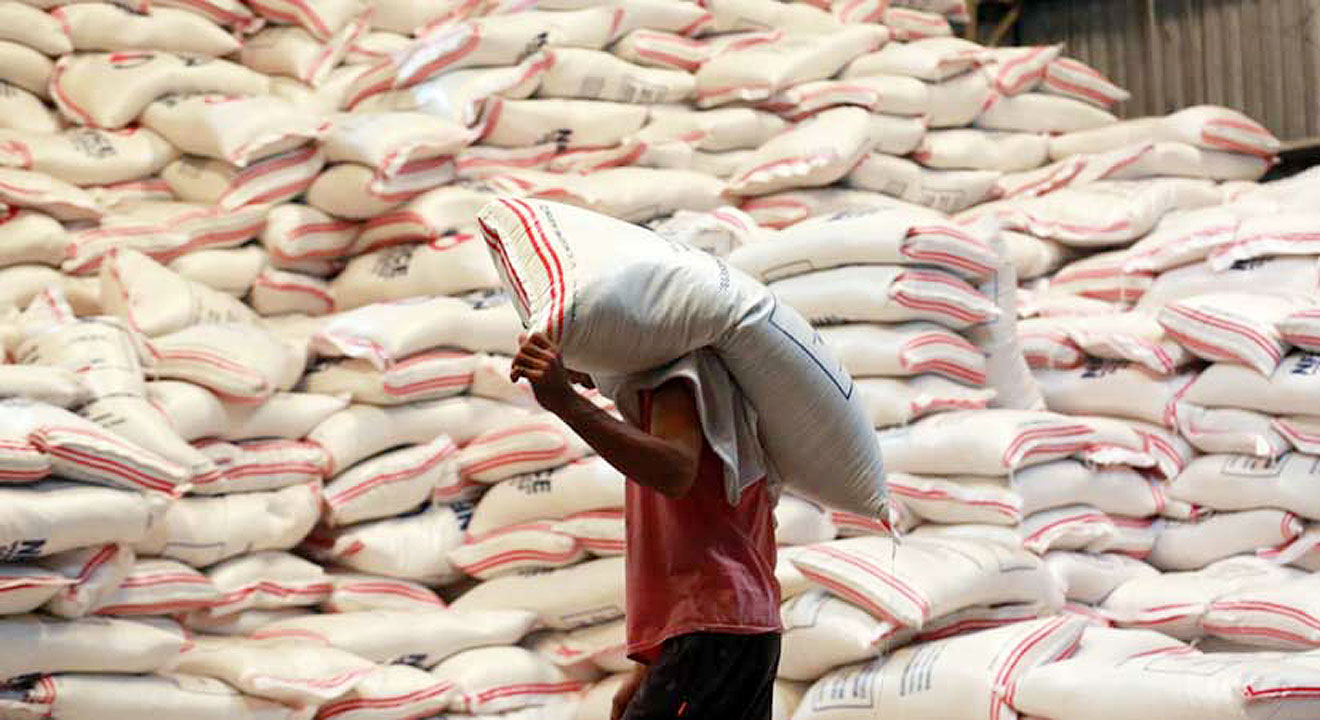
A NON-GOVERNMENT organization asked the government to impose price controls on rice, citing the need to deter traders from stockpiling rice instead of releasing inventory onto the market.
“As long as there is (the Rice Tariffication Law, or Republic Act 11203) and the government does not take drastic measures to impose price controls or check the warehouses of traders… rice prices will continue to rise,” Bantay Bigas Spokesperson Cathy L. Estavillo said in a briefing.
RA 11203, signed in 2019 liberalized rice imports, which used to be a government monopoly. Instead, importers had to pay a tariff of 35% on shipments of Southeast Asian grain to generate revenue for the government and finance the Rice Competitiveness Enhancement Fund.
At the same time, Ms. Estavillo also warned that the arrival of new imports from Vietnam and possibly India may depress prices at the farmgate level prices during the harvest in September.
Kilusang Magbubukid ng Pilipinas Chairman Danilo H. Ramos also blamed “the cartel in rice” — stockpiling by traders — for the increase in retail prices.
“The farmers as a whole have no capability to store their palay because that is what they use to pay for their debts and daily needs,” he added.
Both groups reiterated their call to repeal the Rice Tariffication Law, which they said have worsened the rice crisis and imposed losses on farmers.
This (increase) in the price of rice is (the result of) price manipulation by traders, millers, and importers. Since the signing of RA 11203, the private sector sets the price of the rice in the market, and the government has done nothing,” Ms. Estavillo said.
Agriculture Assistant Secretary and Deputy Spokesperson Rex C. Estoperez told reporters on Monday that the increase in rice prices was due to higher international prices.
“We talked to a lot of rice retailers and rice importers, mataas ang kanilang kuha dahil nga sa presyo ng kanilang imports din naman (their acquisition costs are high because import prices are also high),” he said.
Mr. Estoperez said price controls are not possible, but the DA’s enforcement and inspectorate arm could start visiting warehouses to validate claims of hoarding.
“What would be our basis (for price controls?) We are not in an emergency (that justifies price controls),” he said.
Asked to comment on calls to repeal the Rice Tariffication Law, he said: “A review, I think, is the best solution. We will revisit the Rice Tariffication Law. Will look at what else needs to be amended, what provisions need to be strengthened.”
On Monday, the DA’s Bantay Presyo price monitors quote domestic well-milled rice prices at between P42 and P53, while regular-milled rice was sold for between P38 and P52.
Imported well-milled rice sold in Metro Manila markets for between P45 and P46. — Sheldeen Joy Talavera



